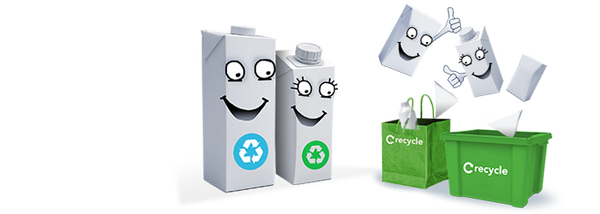Recycling Aquapax

Aquapax Cartons:
Aquapax cartons play a crucial role in promoting a low carbon circular economy. These cartons are designed to be not only re-sealable and reusable but also entirely recyclable once they are empty. In fact, there are more than 25 carton recycling plants in the UK and Europe, making the recycling process accessible and sustainable.
What sets Aquapax cartons apart is that over 82% of their composition is derived from plant-based materials, featuring FSC Certified paperboard and Bonsucro Certified sugarcane caps. The primary raw material, paperboard, is produced using predominantly renewable energy sources. Moreover, Aquapax cartons proudly bear the FSC™ stamp, signifying that the timber used in the paperboard production originates from FSC certified forests and controlled sources.
These cartons are not only eco-friendly but also highly efficient. They are lightweight, easy to transport, and recyclable. They can keep water fresh at ambient temperatures without requiring preservatives or refrigeration, thanks to the thin polymer layers that provide a watertight barrier both inside and outside the carton.
Furthermore, Aquapax cartons incorporate a thin layer of aluminium, thinner than a human hair, which serves as an effective barrier against harmful oxygen and light. This feature is crucial because exposure to light and oxygen can lead to a loss of natural taste, colour, aroma, and nutritional value.
When it comes to recycling, empty Aquapax cartons enjoy widespread collection coverage. They are collected by 93% of UK councils, through a combination of doorstep and bring banks, with 66% of UK councils offering doorstep collection facilities. For more information, please refer to the links below for additional details from © ACE - The Alliance for Beverage Cartons and the Environment (ACE).
Click here for: Recycling Factsheet
Click here for: Renewable Factsheet
Click here for: Low Carbon Factsheet
Aquapax Sparkling Cans:
To recycle Aquapax sparkling water cans in the UK, start by emptying the cans and, if possible, rinsing them to remove any remaining liquid. Then, consult your local recycling guidelines to ensure you're following the specific instructions in your area.
Afterward, place the cleaned cans in the designated recycling bin or container provided for aluminium cans. If your region has can deposit programs, you might want to participate, as these programs offer incentives for returning cans to designated locations.
Lastly, be an advocate for recycling and encourage others in your community to join in the effort to reduce waste and support sustainability through responsible recycling practices. Recycling aluminium cans is a meaningful contribution to a more eco-friendly future in the UK.
